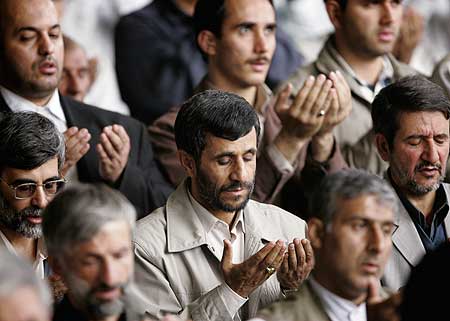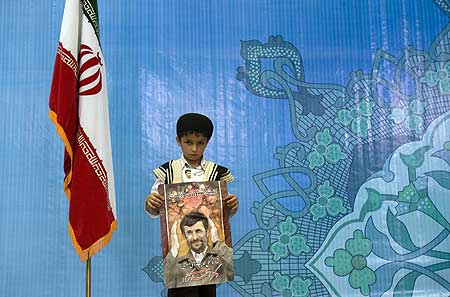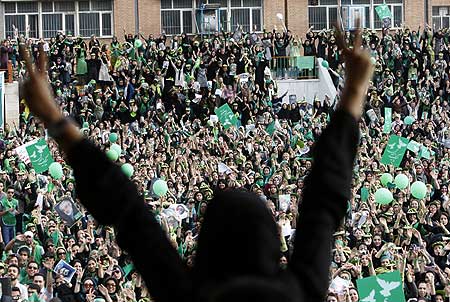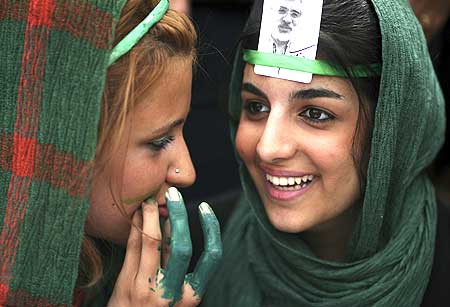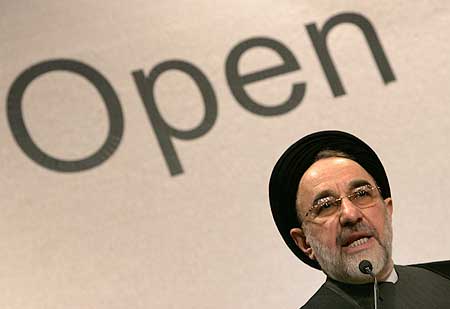 | « Back to article | Print this article |
All you wanted to know about Iran's elections
Controversial Iranian President Mahmoud Ahmadinejad faces political rival and former prime minister Mir-Hossein Mousavi in the 10th general elections in the country on June 12.
Ahmadinejad, known for his frequent run-ins with the West, is seeking a second four-year term.
Former President Mohammad Khatami, an avowed detractor of Ahmadinejad, was expected to run for the post again. But he decided to now throw his weight behind Mousavi.
Bitter presidential campaign
Mousavi, who served as the prime minister of Iran from 1981 to 1989, was widely respected for his reformist agenda.
An architect by profession, Mousavi was the last PM of the Islamic Republic, and was hailed for his handling of the Iran-Iraq war and the country's economy.
Mousavi has promised to change the country's economic structure and end Iran's international isolation. His decision to contest the presidential election was welcomed by trade unions and grass-roots activists.
In fact, Mousavi's burgeoning popularity on Facebook had forced the Iran government to ban the social networking site for a few days.
Rising inflation plagues Ahmadinejad
Iran has over 46 million registered voters. The President is elected by direct vote and he needs to secure a simple majority. In case no candidate is able to get a simple majority, another round of election is held between the two top contenders, and the person who wins the majority of votes becomes the President.
The presidential campaign this year has turned increasingly bitter, with both camps hurling accusations at each other.
During a recent televised debate, Ahmadinejad alleged that some Mousavi supporters, including sons of powerful Iranian cleric Akbar Hashemi Rafsanjani, had received financial privileges in the past.
An enraged Rafsanjani has now threatened to sue the Iranian President.
Ahmadinejad's opponents have targeted him on the rising inflation in the country and his controversial economic policies.
Iran stands isolated from the West
In the 2005 polls, Ahmadinejad had come to power after making promises of a more equitable distribution of the nation's oil wealth and reviving the values of the Islamic Revolution.
However, the Iranian President's rhetoric against the West, his refusal to yield on the Mid-East crisis and the country's nuclear programme encouraged by him have further isolated the nation.
Ahmadinejad has support of the Supreme Leader
Iran has also faced severe sanctions by the United Nations, over its alleged nuclear programme, while inflation has climbed steadily at over 27 per cent.
However, Ahmadinejad's hardline policies have gained the support of Iran's Supreme Leader Ayatollah Ali Khamenei, who has endorsed the President's stance on the country's nuclear programme.
In spite of immense popular support for Mousavi, experts predict an easy win for Ahmadinejad, who enjoys Khamenei's support.
According to the Iranian constitution, Supreme Leader Khamenei, not the President, is Iran's highest-ranking official.
